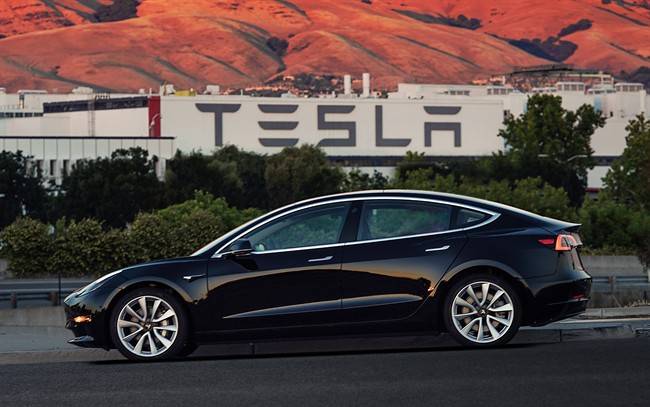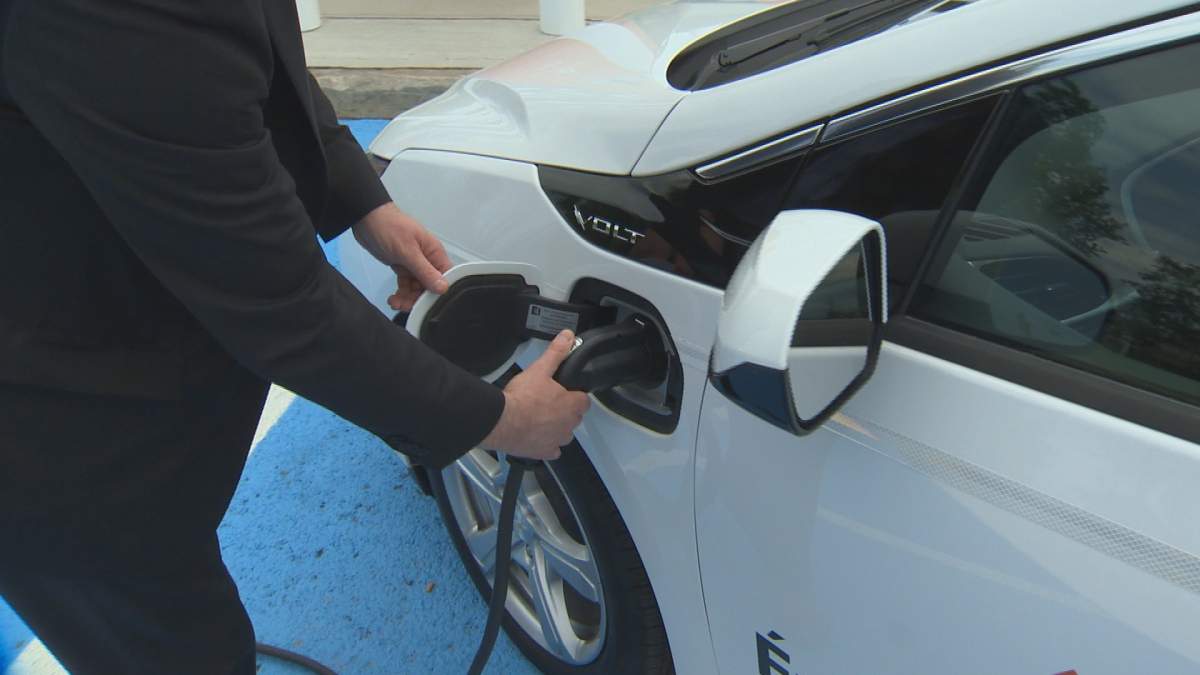From flashy reveals of Tesla vehicles to electric car ads at your local movie theatre, many consumer may think the age of the electric car has arrived.

But a look at the numbers suggests Canada is lagging behind other industrialized countries when it comes to actually buying the vehicles.
A recent report from Clean Energy Canada found that in 2016 just 0.6 per cent of cars sold in the country were electric vehicles (EVs). Stack that against Norway where the number is closer to 29 per cent.
So why the lag?
LISTEN: Electric car sales are down in Canada vs many first world countries, but why?
Speaking on CKNW’s Steele & Drex, Vancouver Electric Vehicle Association president Bruce Sharp said there are a number of factors at play in keeping electric cars from making a breakthrough.
He said EVs remain something of an exotic product to many people. And for other consumers, who are interested and shopping around, there are a limited number of models on the lot to try out, he added.
- WestJet execs tried cramped seats on flight weeks before viral video sparked backlash
- Pizza wars? As U.S. chains fight for consumers, how things slice up here
- Health Canada says fake Viagra, Cialis likely sold in multiple Ontario cities
- Canada increased imports from the U.S. in October, StatCan says
Then, there’s the added cost.

Get breaking National news
“They do cost a little bit more upfront because over the life of the car you’re not buying gas, you’re not buying oil, the maintenance costs are really low, so you get all of that back,” he said. “But the upfront cost is a little bit higher.”
Tesla’s “affordable” Model 3, for example, is slated to cost about US$35,000, although Sharp said there are base models available from other companies for as little as C$20,000.
Among Clean Energy Canada’s recommendations for boosting EVs sales is including point-of-sale rebates such as B.C.’s own $5,000 EV rebate program.
However, opinion on rebates is divided.
A report from the Montreal Economic Institute earlier this year found EV rebates were not a cost effective way to reduce carbon emissions, finding Quebec and Ontario’s rebate program cost $523 and $288, respectively, per tonne of carbon scrapped.
Infrastructure issues also continue to hold the industry back, although Sharp argues they are somewhat overblown.
Many stratas, for example, do not have EV charging stations, something Sharp admits can be a challenge.
“I won’t pretend it’s anything other than an uphill battle. You’ve got to convince your strata council and so on.”
Sharp said there is a role for government in addressing those challenges, pointing to Richmond which recently passed zoning bylaws to promote EV charging stations.
Richmond, he said, is also discussing the idea of of stopping stratas from banning charge stations if an owner is willing to pay for the installation.

In terms of public infrastructure for EVs, Sharp argues “it’s coming,” but said most people aren’t aware of how much is already in place.
“It’s amazing. There’s hundreds of them in the Lower Mainland that you probably aren’t even aware of because you don’t need them because you don’t have an electric car.”
The City of Vancouver currently has 16 curbside charging stations and is looking at another 20. It also recently added new fees for the use of those stations.
According to Montreal-based Charge Hub, there are just under 4,000 charging stations across Canada.
While the adoption of EVs may be slower than in other countries, there are signs that progress is being made.
Data collected by EV focused research company FleetCarma found that by the third quarter of 2017, Canada had sold 12,470 hybrid and fully electric vehicles — more than the 11,000 sold in all of 2016.
However, when it came to a provincial breakdown, B.C. lagged with about 2,400 sales – around half of the total sold in both Ontario and Quebec.
BC Hydro has estimated that B.C. will be home to 300,000 EVs within 15 years.
-With files form Rebecca Joseph and The Canadian Press








Comments